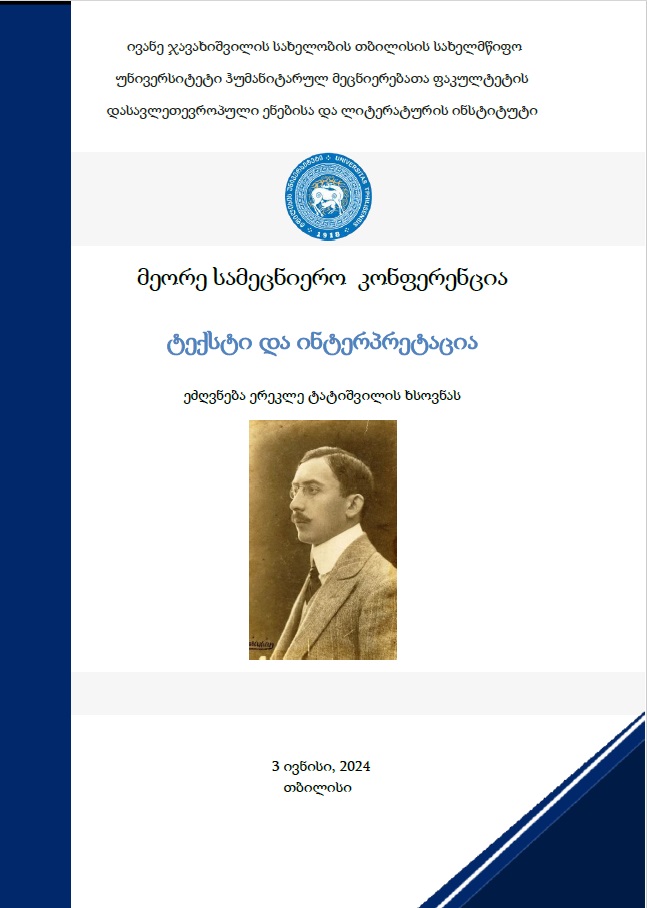Georgian Translations of The Reader by Bernhard Schlink
Keywords:
Totalitarianism, crime, punishmentAbstract
Bernhard Schlink (1944), one of the most successful and visible representatives of modern German literature, is popular among readers and enjoys attention of literary scholars. His acclaimed novel The Reader (1995) is the writer's first non-detective novel, which brought him worldwide recognition. Bernhard Schlink, as a representative of the generation after the Second World War, is aware of the consequences of the National Socialist dictatorship for Germany and, in general, for humanity, which he perfectly illustrated in his novel The Reader.
The problems posed in Bernhard Schlink's works are equally relevant and interesting for readers of different generations and nationalities. Totalitarianism and its consequences are not only a tragedy of one country, one nation. It is a problem of general, global importance. The Reader is interesting precisely because the author presents the crime from a different perspective - the author makes the criminal a victim.
For the right comprehension of Georgian translations of Bernhard Schlink's novels special attention should be given to the structure and language of the text. The writer's clear and vivid style of narration has an amazing effect on the reader. Schlink rejects complex and difficult language, therefore the writer's narrative style convinces the reader that the stories are real and autobiographical. All that he sees, thinks and experiences, he further artistically elaborates in his novels. In the Reader, the narrating self and the experiencing self are largely identical. Authorial and personal narrative perspectives alternate in the novel. The structure of the three-part novel follows a central plot line. Importantly, autobiographical elements make the narrative more believable and authentic. The young Michael Berg, the narrator, portrays the author Bernhard Schlink himself and conveys his ideas. The professional alignment between the main protagonist and the writer empowers young Michael to evaluate Hannah's criminal past and enables Schlink to re-evaluate his parents' past. It should be noted that the author himself grew up in Heidelberg from an early age. The action in the novel takes place in the same city.
The popularity of the Reader in Georgia is demonstrated by the fact that it was translated into Georgian three times - in 2005, 2010 and 2022. The first two editions with minor changes belong to Maia Mirianashvili. For the third the novel was translated by Gvantsa Shubitidze and Natia Laferadze. The novel was published in 2022 by „Intelekti“Publishing. All three translations have their own value and role in introducing the international bestseller to Georgian readers.
The purpose of the present paper is to compare Georgian translations of The Reader and to expose their literary value. At the same time, the paper aims to specify which translation is closer to the original, to what extent it preserves the spirituality of the era, and the artistic style characterized by Bernhard Schlink's novel.

